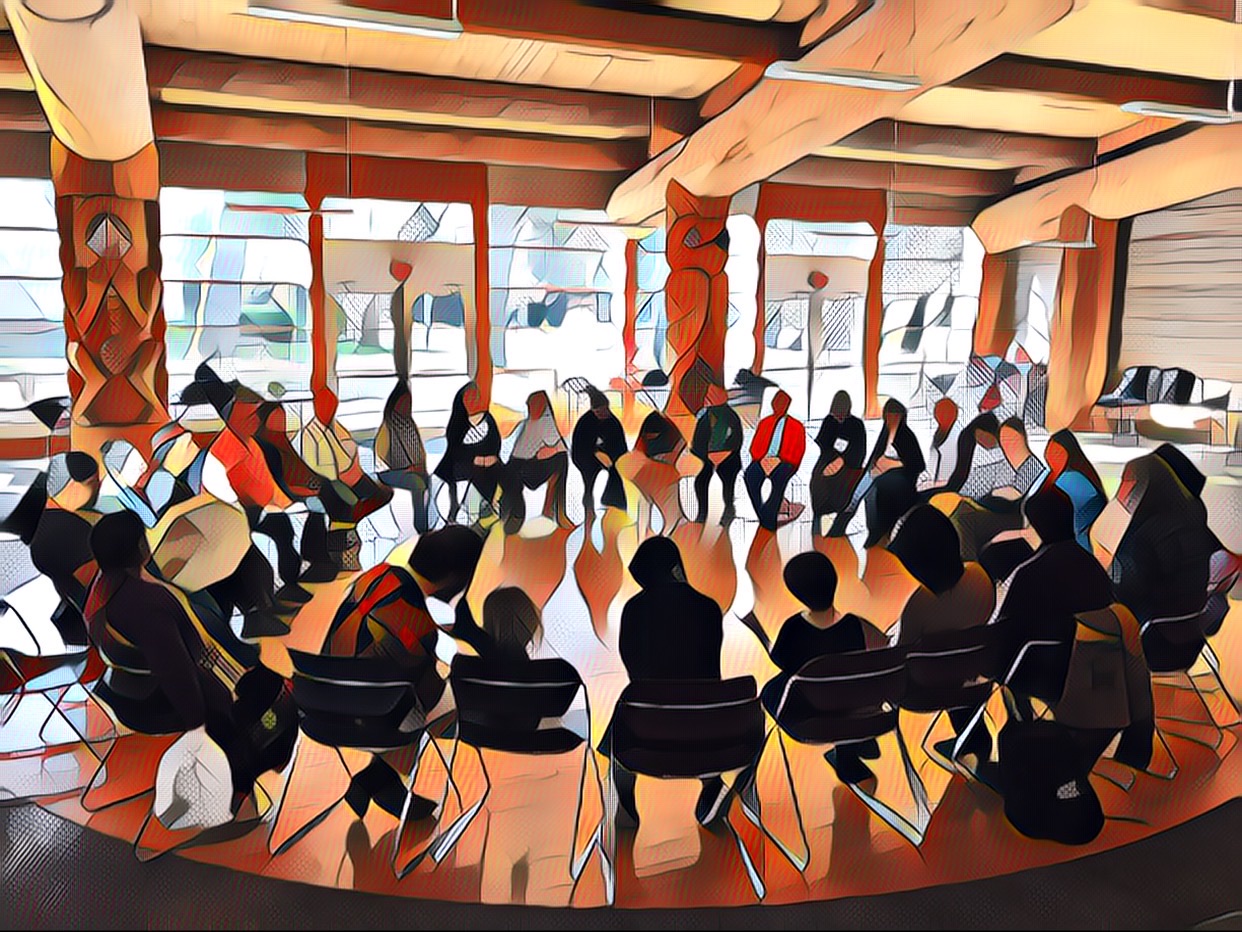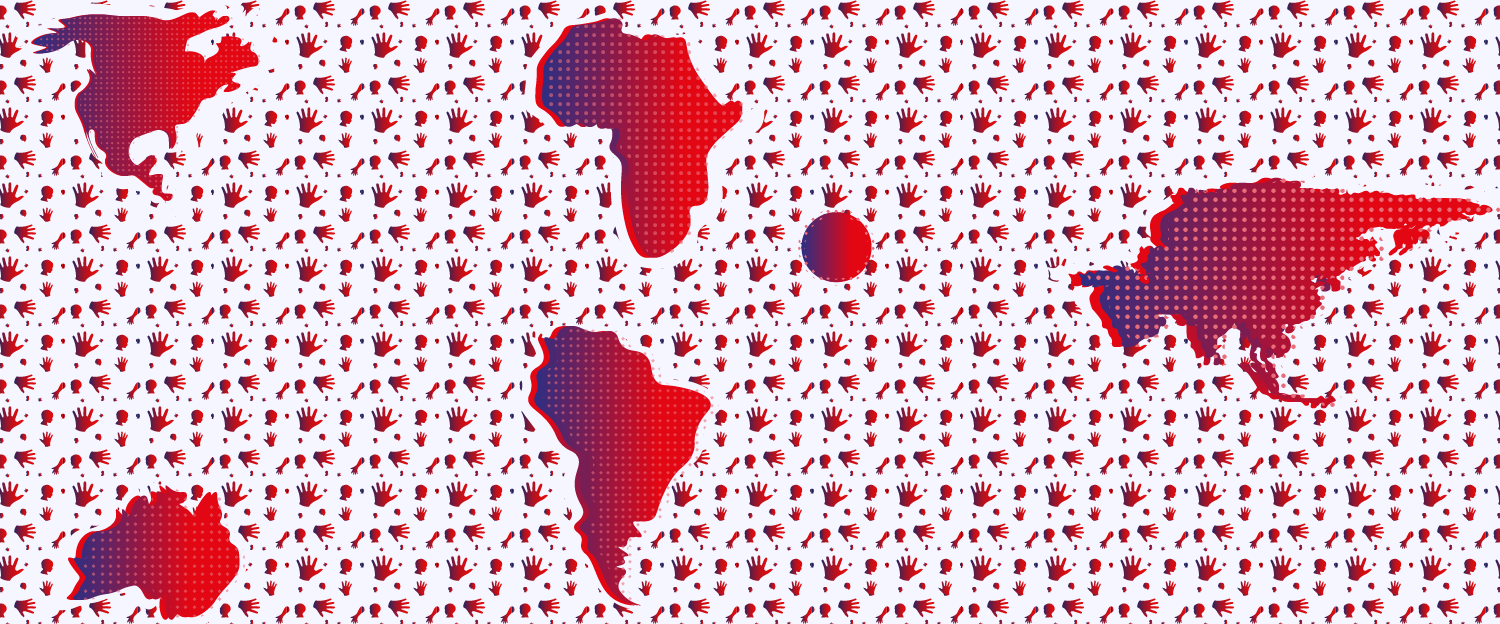Often in decolonising work, people tend to underestimate just how deeply colonisation shapes our everyday lives, and overestimate our capacity to identify and interrupt it. This is especially true in academic contexts where we tend to assume that if we simply accumulate more facts and information about the histories of colonialism and its contemporary impacts, this will then lead us to shift our actions away from reproducing colonial harm. But we cannot just read ourselves out of colonisation, nor into decolonisation. The intellectual dimension of decolonisation is only part of the work. To a certain extent, it is understandable that this dimension becomes the focus of most decolonising work in Higher Education (HE). But in order for decolonisation in HE to be possible, we will still need to deal with the other dimensions - work that is political, economic, ecological, affective and relational.
As part of Black History Month 2020, I was invited by The Open University to talk about this work.
In the presentation, I specifically focused on the imperative to develop the stamina and capacities that could prepare us to address the affective and relational dimensions of decolonising work in higher education. This affective work entails acknowledging, analysing, and accepting responsibility for processing the often difficult and uncomfortable embodied and emotional responses to the tensions, conflicts and uncertainties that inevitably arise in decolonisation efforts (Ahmed, 2012; Taylor, 2013), and this relational work entails developing and sustaining relationships that honour the integrity of this challenging decolonising process through deep respect, accountability, reciprocity, trust, and consent (Ahenakew, 2016, 2019; Jimmy, Andreotti & Stein, 2019; Whyte, 2020). In this article, I will summarise some elements of my presentation, and provide links to relevant resources.
My work in this area is informed by my collaborations as a founding member of the Gesturing Towards Decolonial Futures (GTDF) Collective, a trans-national, inter-generational group of researchers, artists, educators, students, activists and ancestral/Indigenous knowledge keepers who work together to develop educational and artistic experiments. There are many different ways of conceptualising decolonisation, but in the GTDF Collective we approach it as a difficult, ongoing process and long-term horizon, rather than a single event. This is because, in our analysis, decolonisation remains impossible as long as our livelihoods continue to be underwritten by systemic violence and unsustainability.
Resources for Developing Affective and Relational Capacities
As mentioned above, there is no universal guide to decolonisation. It demands different things of different people, and thus it is important to have different resources, and even different spaces for people to engage with this work. For instance, my own approach to decolonisation is shaped by my position as a white/settler woman living in what is currently known as Canada. In this article I specifically address some of the complexities of decolonisation that are often encountered by white people.
Generally speaking, in relation to the affective dimension, white people expect to be made comfortable in conversations about decolonisation. This can lead us to prioritise maintaining our own “good” feelings, rather than prioritise the imperative to interrupt harmful colonial systems and desires.In the work of the GTDF Collective, we have found that although a deep understanding of colonialism and its complexities is essential to any decolonisation effort, having an intellectual grasp of the harmful effects of colonisation does not necessarily translate into a decolonial disposition. In other words, desires for and investments in the promises and pleasures that colonisation offers do not necessarily shift alongside shifts in our ideas. People can strongly believe in the need for decolonial change in theory, but still resist those changes in practice, especially when they perceive that their exceptionalism, entitlements, epistemic certainty and moral authority are being challenged. This can be understood, in part, as the product of a common desire to transcend one’s complicity in colonialism without giving anything up (Jefferess, 2012; Shotwell, 2016; Stein, 2020; Tuck & Yang, 2012). It is extremely difficult to break the colonial patterns that we are socialised into, especially when those patterns are enjoyable, easy and affirming. Thus, there is a need to consistently work toward balancing the imperatives for intellectual, affective, and relational rigour in decolonising work.
Generally speaking, in relation to the affective dimension, white people expect to be made comfortable in conversations about decolonisation. This can lead us to prioritise maintaining our own “good” feelings, rather than prioritise the imperative to interrupt harmful colonial systems and desires. Further, the labour of comforting or assuring white people often falls to people of colour. Indeed, many white people feel entitled to this labour, a demand that is often expressed in unconscious ways.
The poems “Wanna Be An Ally” and “Why I Can’t Hold Space for You Anymore” by the GTDF collective invite white people to undertake some of the difficult learning and unlearning that is a precondition for decolonising in ways that do not create more labour or pain for people of colour. The CIRCULAR exercise was developed as a means to identify and deconstruct common approaches to decolonial change that fail to challenge colonial desires and perceived entitlements and exceptionalism. These include the desires for continuity, innocence, unrestricted autonomy, and (political/moral/epistemic) authority. The CIRCULAR framework is not intended to serve as a checklist for “what not to do”, nor to be mobilised in a competition for moral high grounds. In fact, it is nearly impossible not to reproduce at least some of these patterns in the context of decolonising work. Rather this exercise invites scholars and practitioners of higher education to self-reflexively observe their own actions, analyses, and responses in relation to these patterns so as to potentially interrupt them. Alongside the CIRCULAR patterns, we have also developed a set of “radars” for identifying colonial patterns, behaviours, and responses.
Holding Space for the Inevitable Challenges of Decolonisation
The above exercises and frameworks can help to create the conditions under which genuine, generative conversations and collaborations around decolonisation between people of colour and white people can become possible. In this sense, preparing for the affective and relational challenges of decolonisation in higher education can be understood as white people ‘doing our homework’ in ways that include but also exceed the practice of educating oneself intellectually about colonisation. When we fail to accept responsibility for doing our own homework, we often create more work for someone else.
...we can build white peoples’ affective capacities so that our fragilities and defences are not activated when someone points out that we repeated a colonial pattern.Developing the stamina and affective and relational capacities reviewed here does not mean that conflicts and challenges will not arise in the process of decolonising higher education, but it can help prepare us to stay engaged and sustain relationships when they inevitably do. For instance, we can build white peoples’ affective capacities so that our fragilities and defences are not activated when someone points out that we repeated a colonial pattern. In this way, we might learn to hold space for the challenges and complexities of decolonisation without seeking absolution or easy solutions.
Unlearning colonial desires and practices, and learning to be and relate differently, is often difficult, slow, uncomfortable, unpredictable, and even painful. White people will make mistakes (even when we “know better”), tensions will arise, we will become frustrated or feel burnt out and even be tempted to stop at points. It is important to remember in these moments that people of colour do not have the option of stopping this work; it is a mark of colonial privilege that white people have this choice. Thus, it is important to find practices that can allow us to sustain this work and remain accountable, for instance, by doing this work alongside others, and approaching it with humility and humour.
GTDF is currently creating a resource to support this work, Developing Stamina for Decolonizing Higher Education: A Workbook for Non-Indigenous People: check back at the link for updates.




Rate and Review
Rate this video
Review this video
Log into OpenLearn to leave reviews and join in the conversation.
Video reviews
Daniel Linehan - 4 February 2021 7:15pm
The Open University is underwritten by systemic violence? Really? Can I have my money back please?
Daniel Linehan - 4 February 2021 7:22pm
This is jokes isn't it? It can't be real. It's like something from the onion. Amazing that the author can write about approaching such a subject with humility and humour when I've never read such self important, po-faced nonsense in my life. It's a series of unconnected nouns; deep respect, accountability, reciprocity, trust and consent, all jammed together with no real substance. If this is who is planning the restructuring of our curricula we may as well just move back into our caves now. Western society is done for.
Andrew Behenna - 7 February 2021 1:51pm
I scrolled down just for this comment and you didnt let me down.
Daniel Linehan - 21 February 2021 11:53pm
You deserve to be congratulated for reading to the end of the article. Well done.